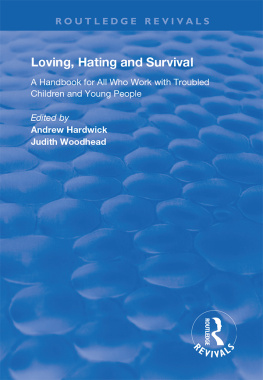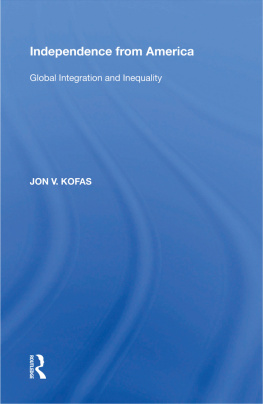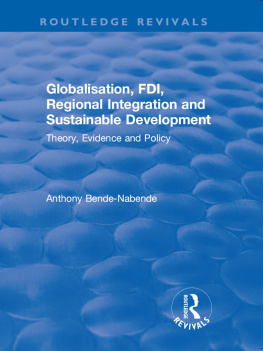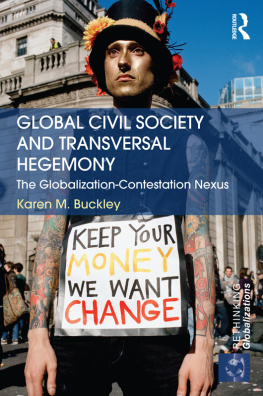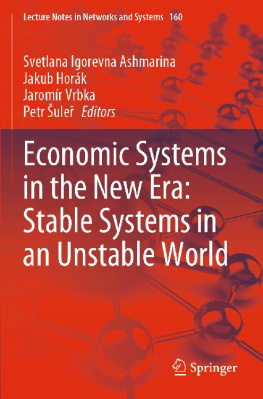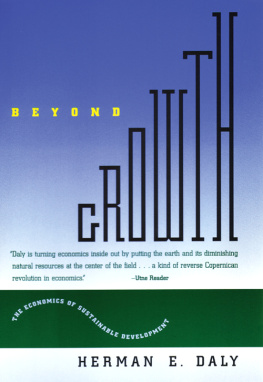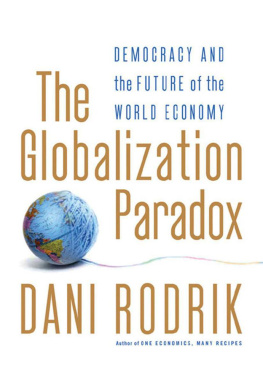LOVING, HATING AND SURVIVAL
It may be a kind of loving but often it has to look like a kind of hating, and the key word is not treatment or cure but rather it is survival. If you survive then the child has a chance to grow and become something like the person he or she would have been if the untoward environmental breakdown had not brought disaster.
Donald Winnicott The David Wills Lecture in Deprivation and Delinquency, 1970.
This book is dedicated to the memory of Michael Jinks and to the work of the Caldecott Foundation
Caldecott
This book has been commissioned and sponsored by the Caldecott Foundation which was founded by Leila Rendel in 1911 as the Caldecott Community, a nursery school for the children of working mothers in St. Pancras. Since then it has grown and developed into one of the countrys foremost residential centres providing 52 week education and care for children and young people aged between 5 and 18 years. When they leave Caldecott there is a specialist Throughcare Service to support them.
Training and development is provided at Caldecott College for field and residential social workers, teachers, and foster carers. The training programmes at the College are a blend of the academic and vocational - university validated courses to degree level are linked to the practical assessments of the NVQ system.
For more information about the work of the Foundation - the Community, the Throughcare Service and the College - the following routes are available:
Caldecott Community and Throughcare Service
Telephone 01233 503954
Fax 01233 502650
Caldecott College
Telephone 01303 814232
Fax 01303 814621
e-mail-
web site-www.caldecottcollege.org
LOVING, HATING AND SURVIVAL
A Handbook for all who work with Troubled Children and Young People
Edited by
Andrew Hardwick
and
Judith Woodhead
First published 1999 by Ashgate Publishing
Reissued 2018 by Routledge
2 Park Square, Milton Park, Abingdon, Oxon, 0X14 4RN
711 Third Avenue, New York, NY 10017, USA
Routledge is an imprint of the Taylor & Francis Group, an informa business
Copyright Andrew Hardwick and Judith Woodhead 1999
All rights reserved. No part of this book may be reprinted or reproduced or utilised in any form or by any electronic, mechanical, or other means, now known or hereafter invented, including photocopying and recording, or in any information storage or retrieval system, without permission in writing from the publishers.
Notice:
Product or corporate names may be trademarks or registered trademarks, and are used only for identification and explanation without intent to infringe.
Publishers Note
The publisher has gone to great lengths to ensure the quality of this reprint but points out that some imperfections in the original copies may be apparent.
Disclaimer
The publisher has made every effort to trace copyright holders and welcomes correspondence from those they have been unable to contact.
A Library of Congress record exists under LC control number: 98040536
ISBN 13: 978-1-138-33443-4 (hbk)
ISBN 13: 978-1-138-33444-1 (pbk)
ISBN 13: 978-0-429-44534-7 (ebk)
The late Michael Jinks, former Director of the Caldecott Community, to whom this book is dedicated, when discussing theory would simply say: Ask yourself, does it help? That is not a bad test for this book and its mix of theory and practice.
We are responding to a challenge. In 1990 when Michael Jinks and James King, the Directors of the Caldecott Community, and their Trustees invited the Dartington Social Research Unit to spend four years looking in detail at the Caldecott Community, they could not have imagined some of the outcomes from the research. One was the recommendation that Caldecott should set up a college for the dissemination of theory and practice in a form and language accessible to those who work with troubled children and young people, a vision articulated with clarity by Michael Jinks. This book is part of our response to that challenge.
The College, founded in 1993, delivers its training at venues throughout the United Kingdom. This book is its first textbook which we hope will also be a useful handbook for those who work with troubled children and young people. It is not a study of outcomes but an attempt to explain how we can achieve the best possible outcomes for both staff and young people. We have incorporated both research and clinical experience into the chapters and we are hoping that Loving, Hating and Survival will be read together with Michael Littles study of the Caldecott, A Life Without Problems? (Arena, 1994).
We owe a debt of gratitude to a number of people who have supported the idea of the book from its inception: first, to The Caldecott Foundation, chaired by Simon Rodway who initially chaired the College Management Committee; to the Committee of Caldecott College now chaired by Mary Moser; to James Gunning, then Treasurer; John Shipton, and Caldecotts Director, Derek Marshall. In the early years Lucy Faithfull was a passionate advocate for the College and she is much missed.
The Gatsby Foundation provided pump-priming funds as did a number of trusts who were approached by the Caldecotts Hope Appeal Committee chaired by Sir Evelyn de Rothschild. To them we owe a special thank you.
At the College, our Registrar, Marilyn White and College Secretary, Claudia Tijou-Smith, moved mountains of typing, collating and correcting. Thanks go to Peter Roycroft, Gill Saxton, Noela Punnet, Angela Cane, Ray Lloyd and Lisa Smith.
Most of the chapters in the book have been road-tested on our students and their frank feedback has been of enormous value. Spencer Millham who chairs the Colleges Academic Board has been an ardent, often challenging, supporter and we recognise here the inspiration of his former Dartington colleagues, Roger Bullock and Michael Little. We have been fortunate to have the advice and support of Graham Fisher and Francia Kinchington at the University of Greenwich and Bill Forsyth and Gordon Jack at the University of Exeter. Other academic assistance has been generously provided by Gillian Miles, Maggie Calder, Elspeth Earle, Jean Packman and Eric Broekart. The Kent Post Qualifying Consortium has provided advice and support from the outset.
A special word of thanks to the staff and managers of the Caldecott Community who have made a huge contribution to the development of the College and the genesis of this book. Jo Gooderham, Kate Trew and Ann Newell at Ashgate Publishing have been most patient supporters.
Mary Moser and Margaret Stirling generously read draft after draft without complaint and made many useful suggestions.
A personal note of thanks to our two families for their support and good-humoured tolerance: to Prue Hardwick and George, Clare, Ruth and Ralph; to Martin Woodhead and Luke, Miriam, Daniel and Joseph.
Working with troubled children is one of the most important, daunting and uplifting tasks that face staff in residential settings, whether those of health, education, social care or the penal system. The peculiar importance of working with young people stems simply from their being young: what we do with, for and to them today reverberates through the whole of the rest of their lives. It affects the lives of all the people they relate to, partner and parent. The work is daunting for staff (and even potentially damaging) as they experience in therapeutic work the impact that emotional harm has upon children and the different effects it produces as they move rapidly through the stages of childhood and adolescence. It is uplifting when the resilience and stamina of youth can be engaged to build on what the supporting individuals and agencies offer, and the prospect of satisfying adult lives is achieved.

